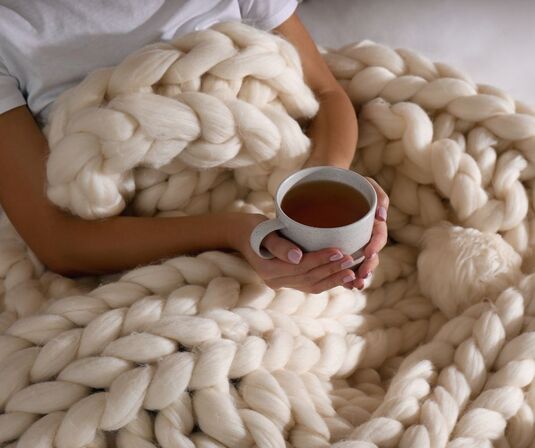With 25% of chronic fatigue syndrome sufferers being so sick they are housebound or bed ridden, it means that many people are limited in their ability to implement self-care strategies that others may take for granted. Things such as going for a walk or having coffee with a friend. To complicate things further, symptoms such as light sensitivity, noise sensitivity, food intolerances, brain fog, pain and mobility issues can make it hard to engage in some activities.
DON’T DESPISE THE SMALL THINGS
Finding small things you can do to bring some joy and calm into your day is essential. Think of these activities as tiny top ups to fill your cup.
Below are some ideas that can really help people get through a day. Obviously, everyone is different and depending on your symptoms and severity some of these may even seem like too much. It’s important to give things a go (perhaps with the help of a carer) and find what works for you. 💙
- Drink plenty of filtered water to make sure you stay hydrated.
- Drink herbal teas regularly. Things like chamomile, liquorice and ginger & lemongrass can have some therapeutic benefit as well as being soothing to the soul.
- Drink your tea in your favourite mug. YES, the mug is important! Find something bright and colourful or cool and calming. Perhaps you have a mug with a funny slogan or an encouraging inscription. Use it.
- Include nourishing, easy to digest foods that you enjoy. This might include soups and broths, slow cooked meals, good quality chocolate and in season fruit.
- Be consistent with taking your supplements and medications as prescribed. If you struggle with this (I know many do) don’t hesitate to reach out to your prescribing practitioner for tools to stay on track.
- Wear fresh, comfortable, and fun pyjamas paired with cosy socks. These are underrated in my opinion!
- Use a good quality pillow and ensure you have a mattress that is up to scratch. Seek advise from a physio or chiropractor if you need recommendations.
- Consider using an air filter. Especially if your space is not well ventilated and you find it difficult to get out in the fresh air. Use an eye mask for moments of intentional rest.
- Open a window and/or the curtains to get fresh air and natural light if possible. If you’re up to it and weather permits, try to sit (or lie) outside for a short time.
- Look at a photo book of natural scenery. Research shows that even looking at photos of natural scenes can help induce a sense of calm and relaxation.
- Keep indoor plants or fresh flowers. Bright and colourful or subdued and calming, whatever you need.
- Listen to soft music or nature sounds. If you’re up to listening to audio books and podcasts, then do this…in chunks if necessary.
- Hang pictures of things, people and places that bring you joy.
Body & skin
- Stretch regularly to the degree that you’re able to. If you need help from a carer that’s OK. It may even be an option to find a mobile physio or massage therapist to help with this.
- Hand or foot massage from your carer or a massage therapist if you can tolerate it. Gentle massage can improve serotonin levels, improve vagus nerve tone and help with relaxation.
- Burn essential oils in a diffuser or use essential oil roll-ons. This can be especially helpful to aid with sleep and relief of headaches. Lavender, chamomile, mandarin and peppermint are all favourites of mine.
- Moisturise regularly with a natural moisturiser. Avoiding chemicals is important but there are many natural options available to choose from.
- Epsom salt foot soaks.
- Apply magnesium oil on tense, sore muscles or rub it on the bottom of your feet before bed to help with sleep.
FOR FRIENDS AND CARERS
Watching someone you love struggle with a chronic illness can be devastating, and the feeling of hopelessness that comes from not being able to “make it better” can be overwhelming. Helping to facilitate some of the above activities goes a long way to making someone’s life a little more bearable. I hope that this list gives you some ideas of how you can be that beacon of light in your person’s day.
Kelli Kieselbach BHSc (NutDMed), Adv Dip (Nat), Adv Dip (WHM)
Kelli is an Adelaide based Naturopath and Clinical Nutritionist who works with clients of all ages to restore health and prevent disease using nutrition and herbal medicine. Kelli has a special interest in pain and fatigue management working closely with Fibromyalgia and Chronic Fatigue Syndrome patients to empower them to live life with more energy and less pain. Kelli sees patients one on one both in clinic and online, as well as educating businesses and community groups on various health related topics through workshops and guest speaking roles.
Kelli works Thursdays at Marion Physiotherapy. To see how she can help you please call 82967594 to book an appointment or visit our Naturopath & Nutrition page.


 RSS Feed
RSS Feed